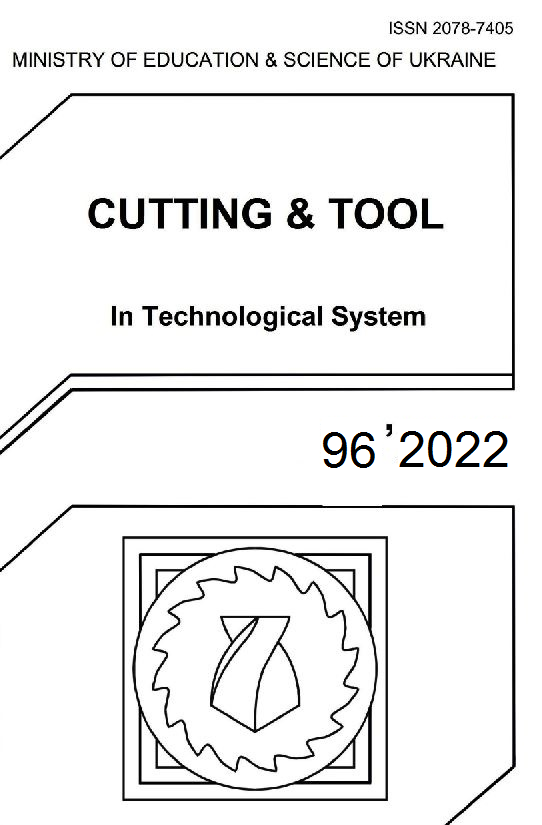ANALYSIS AND COMPARISON OF THE WASTE MANAGEMENT DEVELOPMENT IN HUNGARY AND SLOVAKIA
DOI:
https://doi.org/10.20998/2078-7405.2022.96.03Keywords:
waste management, city logistics, data analysisAbstract
Waste production is an indispensable human process that happens daily in all communities. With the population increase and the industry developments, the waste amounts are growing, and their treating processes are taking a bigger share of the transportation and handling tasks in the city logistics. These waste collection, transportation, and treatment are described as waste management has been investigated and developed especially with the various application, solutions, and developments in the logistics, transportation, and industrial areas. Also, with the higher attention to the environmental impact in the different areas, the green aspect of waste management takes more importance particularly in city logistics where congestion occurs regularly. Within this work, waste management is analyzed in Europe generally and Hungary specifically. Eurostat database is used for that purpose next to previous research work tackling this topic. Also, a comparison between the waste management operations in Hungary and Slovakia is discussed to show the difference of these operations’ developments between the two countries between 2014 and 2020.
References
Mesjasz-Lech, A., Michelberger. P., Sustainable Waste Logistics and the Development of Trade in Recyclable Raw Materials in Poland and Hungary, Sustainability (2019) https://doi.org/10.3390/su11154159.
Proposal for a Directive of the European Parliament and of the Council Amending Directive 94/62/EC on Packaging and Packaging Waste. 2015. Available: https://eur-lex.europa.eu/legal-content/EN/TXT/?uri=CELEX:52015PC0596 Accessed: 13/01/2022.
Bing, X., Bloemhof, J.M., Ramos, T.R.P., Barbosa-Povoa, A.P., Wong, C.Y., Van Der Vorst, J.G.: Research challenges in municipal solid waste logistics management, Waste Management (2016) pp. 584-592, https://doi.org/10.1016/j.wasman.2015.11.025.
Akkad, M.Z., Bányai, T.: Cyber-physical waste collection system: a logistics approach, In: Solutions for Sustainable Development: Proceedings of the 1st International Conference on Engineering Solutions for Sustainable Development (2019) pp.160-168, https://doi.org/10.1201/9780367824037.
Straka, M., Rosova, A., Malindzakova, M., Khouri, S., Culkova, K.: Evaluating the waste incineration process for sustainable development through modelling, logistics, and simulation, Polish Journal of Environmental Studies (2018) pp. 2739-2748, https://doi.org/10.15244/pjoes/81062.
Bing, X., Bloemhof, J.M., Ramos, T.R.P., Barbosa-Povoa, A.P., Wong, C.Y., Van Der Vorst, J.G.: Research challenges in municipal solid waste logistics management, Waste Management (2016) pp. 584-592, https://doi.org/10.1016/j.wasman.2015.11.025.
Winkler, H., Kaluza, B.: Sustainable supply chain networks - A new approach for effective waste management, WIT Transactions on Ecology and the Environment, (2006) pp. 501-510 https://doi.org/10.2495/WM060521.
Das, S., Lee, S.H., Kumar, P., Kim, K.H., Lee, S.S., Bhattacharya, S.S.: Solid waste management: Scope and the challenge of sustainability, Journal of Cleaner Production, (2019) pp. 658-678 https://doi.org/10.1016/j.jclepro.2019.04.323.
Bányai, T., Tamás, P., Illés, B., Stankevičiūtė, Z., Bányai, Á.: Optimization of municipal waste collection routing: impact of industry 4.0 technologies on environmental awareness and sustainability, International Journal of Environmental Research and Public Health (2019) https://doi.org/10.3390/ijerph16040634.
Gomes, M.I., Barbosa-Povoa, A.P., Novais, A.Q.: Modelling a recovery network for WEEE: A case study in Portugal, Waste Management (2011) pp. 1645-1660 https://doi.org/10.1016/j.wasman.2011.02.023.
Mar-Ortiz, J., Adenso-Diaz, B., Gonzalez-Velarde, J.L.: Design of a recovery network for WEEE, collection: The case of Galicia, Spain, Journal of the Operational Research Society (2011) pp. 1471-1484 https://doi.org/10.1057/jors.2010.114.
Demirel, E., Demirel, N., Gokcen, H.: A mixed integer linear programming model to optimize reverse logistics activities of end-of-life vehicles in Turkey, Journal of Clean Production (2016) pp. 2101-2113 https://doi.org/10.1016/j.jclepro.2014.10.079.
Chung, S.S., Lau, K.Y., Zhang, C.: Generation of and control measures for e-waste in Hong Kong, Waste Management (2011) pp. 544-554 https://doi.org/10.1016/j.wasman.2010.10.003.
Grunow, M., Gobbi, C., Alting, L.: Designing the reverse network for WEEE in Denmark, CIRP Annals (2009) pp. 391-394 https://doi.org/10.1016/j.cirp.2009.03.036.
Kinobe, J.R., Bosona, T., Gebresenbet, G., Niwagaba, C.B., Vinneras, B.: Optimization of waste collection and disposal in Kampala city. Habitat International (2015) pp. 126-137 https://doi.org/10.1016/j.habitatint.2015.05.025.
Gamberini, R., Gebennini, E., Rimini, B.: An innovative container for WEEE collection and transport: Details and effects following the adoption. Waste Management (2009) pp. 2846-2858 http://dx.doi.org/10.1016/j.wasman.2009.07.006.
Yu, M.C., Wu, P.S.: A simulation study of the factors influencing the design of a waste collection channel in Taiwan, International Journal of Logistics Research and Applications (2010) pp. 257-271 https://doi.org/10.1080/13675561003724646.
Eurostat Statistics: Municipal waste by waste management operations. Available: https://ec.europa.eu/eurostat/cache/metadata/en/env_wasmun_esms.htm Accessed: 13/01/2022.
Eurostat Statistics: Recycling rate of municipal waste. Available: https://ec.europa.eu/eurostat/cache/metadata/en/cei_wm011_esmsip2.htm.
Downloads
Published
Issue
Section
License
Copyright Notice
Authors who publish with this Collection agree to the following terms:
1. Authors retain copyright and grant the Collection right of first publication with the work simultaneously licensed under a Creative Commons Attribution License that allows others to share the work with an acknowledgement of the work's authorship and initial publication in this Collection.
2. Authors are able to enter into separate, additional contractual arrangements for the non-exclusive distribution of the Collection's published version of the work (e.g., post it to an institutional repository or publish it in a book), with an acknowledgement of its initial publication in this Collection.
3. Authors are permitted and encouraged to post their work online (e.g., in institutional repositories or on their website) prior to and during the submission process, as it can lead to productive exchanges, as well as earlier and greater citation of published work.

